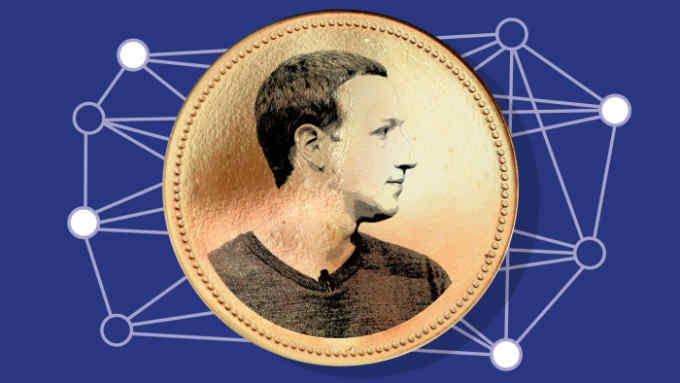Facebook’s Libra currency draws instant response from regulators

Simply sign up to the Cryptocurrencies myFT Digest -- delivered directly to your inbox.
Facebook’s plans to launch a new global digital currency drew an immediate response from regulators on Tuesday, with the Group of Seven nations saying it would set up a high-level forum to examine the risks of such currencies to the financial system.
The G7 working group will also consider how to ensure proper controls against money-laundering, according to a letter from Bruno Le Maire, the French finance minister, and François Villeroy de Galhau, the governor of the Banque de France. The French hold the rotating presidency of the G7.
Central banks and the International Monetary Fund will also participate, according to the letter, which was seen by the Financial Times.
The news came after Facebook revealed the details of a new currency, called Libra and supported by more than two dozen companies and groups, from Visa and Mastercard to Vodafone and Uber.
Facebook said the currency would be backed by hard assets, a basket of currencies and securities to ensure trust and a stable value. Users would be able to make instant and nearly free international money transfers from their mobile phones.
In response, Mark Carney, the governor of the Bank of England, said international scrutiny would be brought to bear on Facebook’s plans and that the BoE greeted the ambitions “with an open mind” but not “an open door”.
Mr Carney said at a meeting of central bankers in Portugal that if Facebook was successful in attracting users “it would instantly become systemic and will have to be subject to the highest standards of regulation”.
The BoE, the UK Treasury and the Financial Conduct Authority have already held detailed tripartite discussions about Facebook’s ambitions and consequences on the UK regulatory and policy landscape, according to people familiar with the situation. None of the authorities would comment.
Benoît Cœuré, a member of the European Central Bank’s executive board and one of the front-runners to succeed Mario Draghi as ECB president, is set to co-ordinate the G7 working group, with the first report expected in a month.
The group “will look into a range of challenges raised by the emergence of stable coins, including on the regulatory front”, stated the letter, which did not single out Libra.
It detailed “financial stability risks (possible systemic consequences of broad-based use of stable coins, consumer protection, and spillover and surveillance issues)” as well as “monetary policy transmission issues (substitution effects with legal tender, possible interest payments on stable coins and relation to official interest rate)”.
The swift wave of scrutiny from regulators and policymakers will be a blow to Facebook, which hoped for a regulatory light touch. The technology group is already under fire from regulators and politicians around the world regarding the handling of personal data among other issues.
Facebook said in its launch documents on Tuesday: “The success of this venture depends on its trusted and safe integration with the existing financial system. The world’s governments, specifically regulatory and law-enforcement authorities, are essential partners in this endeavour.”
Letter in response to this article:
Libra double standard must puzzle Zuckerberg / From Scott Dziengelski, Washington, DC, US

Comments